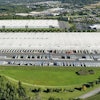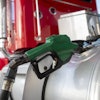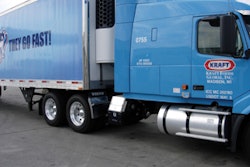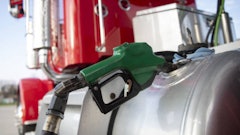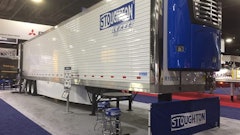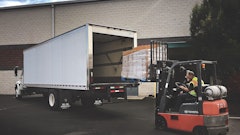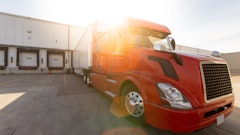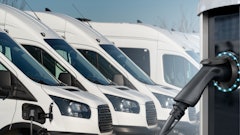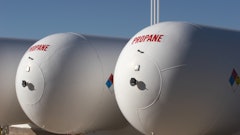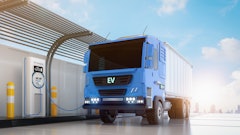FedEx Express has made significant progress towards its goal to make its vehicle fleet 20 percent more fuel efficient by 2020, announcing that the FedEx Express vehicle fleet is now 16.6 percent more fuel efficient through FY2011 than it was in 2005.
Twenty percent of the FedEx Express diesel vehicle pickup and delivery fleet has already been converted to more efficient and cleaner emission models that comply with 2010 U.S. Environmental Protection Agency diesel emission standards.
"Although we are less than halfway to the end date we set for ourselves, we have achieved 80 percent of our vehicle fuel efficiency goal as of the conclusion of fiscal year 2011, compared to our original baseline set in 2005," said Mitch Jackson, staff vice president of environmental affairs and sustainability, FedEx Corp. "As a result, we are reevaluating our 2020 goal to potentially raise the standard we originally set out to achieve."
"Thanks to this team effort, we have converted 20 percent of our pickup and delivery fleet to cleaner and more fuel efficient models," said Dennis Beal, vice president of global vehicles, FedEx Express. "By pursuing the most promising avenues of advanced technologies, enlisting multiple experienced manufacturers and optimizing our vehicle operations, FedEx is reducing fuel use and emissions faster than expected."
The company's significant progress is the result of a number of initiatives:
- Upcoming addition of 87 all-electric trucks to its green fleet bringing the all-electric vehicle count to 130.
- Acceleration of its efforts in fuel conservation through the purchase of vehicles with right-sized engines. By the end of FY13, FedEx will have more than 11,000 such vehicles in service, more than 35 percent of its US pick-up and delivery fleet. Each van is about 70 to 100 percent more fuel-efficient than the original truck it replaces.
- The lower weight design, along with the engine, is expected to save up to 35 percent in fuel over most conventional walk-in vans.
- Testing of FedEx Ground hybrid hydraulic parcel delivery vehicles that can reduce fuel usage by 40 percent.
- Testing of six standard delivery vehicles retrofitted with all-electric drive-trains from various suppliers, including AMP, Smith Electric and Freightliner Custom Chassis Corporation.
The electric truck initiative is aimed not only at improving FedEx fleet efficiency, but also in accelerating the development of all-electric trucks that could compete favorably with traditional vehicles for all users.
"While we naturally want to improve performance and reduce costs for FedEx, we also want to see all-electric trucks become more affordable and reliable for everyone from your local pizza parlor to other small businesses that deliver," said Jackson. "This is a strategy for reducing reliance on petroleum-based fuels in a much faster, more inclusive and impactful way."
FedEx chairman and CEO Frederick W. Smith is co-chair of the organization Securing America's Future Energy (SAFE). He has long been focused on the use of domestic fuel sources, including electricity, to power urban vehicles in the United States.
The new FedEx all-electric vehicles (EV) are being deployed in the next few months in numerous locations which include: California (San Francisco Bay area, Los Angeles, Orange County, San Diego and Central Valley); suburban Washington, DC (Rockville, MD); New York City and several locations in Texas. In Chicago, FedEx is testing electric trucks from several manufacturers head-to-head in daily service to accelerate the development of the vehicles and the EV industry.
Additional all-electric trucks are being prepared for deployment in Asia and Europe, where FedEx Express currently operates all-electric trucks in London and Paris.
Fleet users present an added advantage for all-electric technology, since electric trucks can operate during the day and charge overnight when utilities have spare capacity. FedEx Express is currently working with General Electric and Columbia University on a project in New York City to optimize charging facilities for all-electric trucks.
"Electric drivelines have a tremendous potential, and we are seeing the benefits of integrating them into our fleet, but the technology is still in the early phase of the development cycle," added Beal. "That's why we are aggressively working with several truck manufacturers to fast-forward their products' performance curve and affordability."
